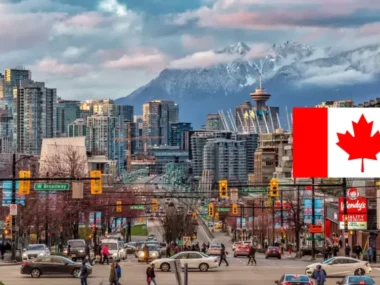Australia, known for its stunning landscapes, high standard of living, and diverse culture, has become a sought-after destination for individuals looking to enhance their career prospects. Whether you’re chasing a dream job, seeking adventure, or planning to settle down, understanding the requirements and procedures for working in Australia is vital.
Australia’s strong economy and diverse job market attract thousands of immigrants each year. Whether you’re seeking entry-level positions or specialized roles, understanding the visa requirements, salary expectations, and application procedures is crucial. This article explores the essentials for immigrants planning to work in Australia, including the types of jobs available, the visa requirements, salary scales, necessary documentation, and useful resources for job hunting. we’ll guide you through the maze of regulations, visas, and essential steps to make your Australian working experience
Entry Level Jobs for Immigrants.
Entry-level jobs provide a starting point for many immigrants. These roles typically require minimal experience and offer a pathway to gain local work experience and build a professional network. Common entry-level positions for immigrants include:
Hospitality and Tourism: Roles such as waitstaff, kitchen hands, and tour guides are in high demand, especially in tourist hotspots like Sydney, Melbourne, and the Great Barrier Reef. These positions often offer flexible hours, making them ideal for newcomers adjusting to a new country.
The first step to working in Australia is determining which visa suits your situation. The Australian government offers various visas catering to different needs, including:
a. Employer-Sponsored Visas
This category covers several visas, such as the Temporary Skill Shortage (TSS) visa (subclass 482) and the Employer Nomination Scheme (ENS) visa (subclass 186). These visas allow Australian employers to sponsor overseas workers to fill skill shortages.
b. Skilled Migration Visas
The General Skilled Migration (GSM) program is designed for skilled workers. To qualify, you need to submit an Expression of Interest (EOI) and be invited to apply. Key visas under this category include:
Skilled Independent visa (subclass 189)
Skilled Nominated visa (subclass 190)
Regional Sponsored Migration Scheme (subclass 187)
For young people (aged 18-30 or 18-35 in some countries), the Working Holiday visa (subclass 417 and 462) allows you to travel and work in Australia for up to two years (with extensions available). This is perfect for those wishing to explore Australia while earning some income.
d. Student Visas
If you are a student wishing to work while studying, you can apply for a Student visa (subclass 500), which allows you to work part-time while you undertake a course in Australia.
OCCUPATION AVERAGE ANNUAL SALARY (AUD)
Hospitality and Tourism $45,000 – $55,000
Retail Sales $40,000 – $50,000
Administration $50,000 – $60,000
Aged Care and Childcare $50,000 – $60,000
Construction Laborer $55,000 – $65,000
Skilled Professionals (IT, Engineering, Healthcare) $80,000 – $120,000
For skilled migration and certain employer-sponsored visas, you may need to undergo a skills assessment. This process verifies that your skills and qualifications meet Australian standards and involves:
Submitting documentation of your qualifications and work experience.
Undergoing an assessment by a relevant assessing authority.
Meeting English language proficiency requirements.
When applying for jobs in Australia, prepare the following documents:
Resume (CV): Tailored to Australian standards, including contact information, work experience, education, skills, and references.
Working in Australia entails meeting specific health and character requirements:
a. Health Requirements
Most visa applicants must undergo a health examination to ensure they do not pose a public health risk. This generally includes medical check-ups and sometimes X-rays.
b. Character Requirements
You may need to provide police checks or declarations to demonstrate that you have a good character and no criminal history.
English Language Proficiency
Proficiency in the English language is crucial for many visa types. You may be required to take an English language test, such as IELTS, PTE, or TOEFL, to demonstrate your ability to communicate effectively in English.
Securing Employment
Once you obtain your visa, it’s time to secure a job. Here are some tips to help you in your job search:
Create a tailored resume: Highlight your skills and experiences relevant to the Australian job market.
Utilize online job portals: Websites like Seek, Indeed, and LinkedIn are great places to start looking for opportunities.
Network: Join professional groups or attend industry meetups to connect with locals and other expatriates in your field.
Consider recruitment agencies: They can provide invaluable support and help you find appropriate job placements.
Employment Websites to Find Opportunities
Several websites can help immigrants find employment opportunities in Australia:
Seek (seek.com.au): One of Australia’s largest job search websites, offering a wide range of job listings across various industries.
Moving to Australia
Once you have secured a position and obtained your visa, make preparations for your move. Some practical considerations include:
Planning your accommodation: Research various neighborhoods to find a suitable place that meets your needs and budget.
Setting up a bank account: Having a local bank account will make managing your finances easier.
Understanding healthcare: Registering for Medicare (if eligible) ensures you have access to healthcare services in Australia.
Working in Australia offers a wealth of opportunities for immigrants, from entry-level positions to skilled professional roles. Understanding the visa requirements, preparing the necessary documents, and knowing where to look for jobs are essential steps in the process. By following this guide, immigrants can navigate the Australian job market more effectively and embark on a successful career in this vibrant country.By educating yourself on the necessary requirements and carefully following the application procedures, you can navigate your way to a successful work life in this beautiful country. Whether you’re a seasoned professional or a recent graduate, Australia welcomes skilled workers from around the globe, so start planning your Australian adventure today!






